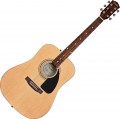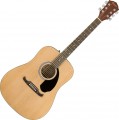Scale
Scale length of the guitar. The scale in this case is the working part of the string, in other words, the distance from the saddle (on the headstock) to the saddle (on the bridge). In most acoustic and similar guitars, the scale is set during production and is unchanged. Without going into technical details, we can say that the value of this parameter is generally a reference: it allows you to some extent estimate the overall dimensions of the instrument, as well as the size of the frets (the longer the scale, the larger the size of the frets, regardless of their number). However, there is also a practical application: with an adjustable anchor (see above), the scale length data can be useful in the tuning process.
Neck material
The material from which the neck of the guitar is made — more precisely, the base of the neck (the fretboard can be made from another material). Now the most commonly used materials are:
nato,
maple and
mahogany. For the value of this parameter, see p. "Top deck".
Strap
The presence of a
belt in the tool kit.
The strap allows you to hang the guitar on your shoulder. This not only gives the guitarist additional options when playing (for example, you can comfortably play while standing), but it can also be useful for transporting the instrument — you can hang it behind your back, freeing your hands (although in this case it doesn’t hurt to make sure the strap is secure). Straps are also sold separately, but the complete accessory, by definition, is optimally suited for the guitar, and besides, you don’t need to spend additional time and effort to buy it.
Picks
Picks included with the guitar.
The pick is a small plate that the guitarist uses to pick the sound from the strings. In this way, you can get a brighter, clearer and more sonorous sound than when playing with your fingers (both on notes and on chords); therefore, many musicians prefer to use picks.
Picks can vary in stiffness; The best option depends primarily on the preferences of the guitarist. Thus, guitars, if they are equipped with picks, then, usually, several at once — this allows the musician to choose the most suitable option.

